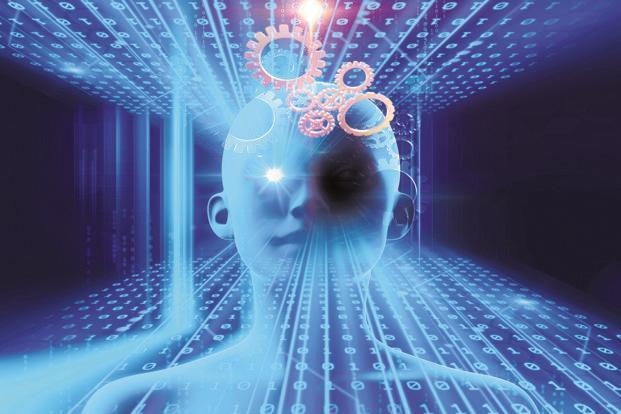Most of us approach healthcare with hesitation. There are often several deterrents to seeking medical care (let alone preventive care)—ease of access being a major one. According to the Indian Journal of Public Health (September 2017 edition), India had just 4.8 practising doctors per 10,000 population.
copyright by www.livemint.com
 While this is expected to grow to 6.9 doctors per 10,000 people by 2030, the minimum doctor-to-patient ratio recommended by the World Health Organization (WHO) is 1:1000.
While this is expected to grow to 6.9 doctors per 10,000 people by 2030, the minimum doctor-to-patient ratio recommended by the World Health Organization (WHO) is 1:1000.
Can we have more doctors? That is easier said than done. Even if we can, with our education system focused on quantity over quality, churning out doctors in droves will not guarantee better quality medical services in our country. Besides, with most graduates preferring lucrative urban locations, many Indians still find themselves at great physical or economic distance from quality healthcare.
Essentially, what we need is to fill the gap between the needs of the plenty and the services of the few. In my view, artificial intelligence (AI) has the capability to enable solutions that form the critical middle layer of access—making healthcare accessible and affordable to a large population base at the same quality level irrespective of people’s social standing. Let us see how AI is set to impact our health in the coming years.
Reactive versus proactive healthcare
The usual attitude towards healthcare is, “I’ll cross that bridge when I come to it”—a reactive rather than proactive approach to seeking medical intervention. However, that has started changing in recent times. Sensors in wearables such as smart watches and Fitbits are already equipped to deliver actionable feedback to apps in our phones and connect to our doctor’s clinic for diagnostic tests and medication prescriptions.
Today, for instance, Apple watches can detect a variety of heart diseases—including diabetes prediction with an 85% match in known cases. All this by using simple, non-invasive tech that is already available.
Interesting AI start-ups like SigTuple (digitized blood analysis), Niramai (thermal scans for breast cancer) and Ten3T (portable, easy-to-use electrocardiograms) are currently developing disruptive diagnostic solutions that will significantly bring down costs, while making physical distance a non-issue. They (and others in this area) do this via cloud-based linkages to hospitals and clinics, chatbots, smart apps and AI-enabled data analytics. This means that sensors, real-time tracking and analytics will enable us to take pre-emptive charge of our own health, helping us to live more aware, healthier, longer lives.
Eliminating human biases
Barring simple ailments, most health consultations and treatments today come with some human bias. Sometimes, there are doubts if doctors’ or pharma companies’ vested interests are pushing certain treatments and medicines. That is why we gravitate towards known doctors. And for serious illnesses and critical care, second opinions are always recommended. In this context, AI-enabled medical care can save time, effort and costs through easy access to unbiased, consistent, good-quality diagnosis and treatment. […]
Thank you for reading this post, don't forget to subscribe to our AI NAVIGATOR!
read more – copyright by www.livemint.com


Most of us approach healthcare with hesitation. There are often several deterrents to seeking medical care (let alone preventive care)—ease of access being a major one. According to the Indian Journal of Public Health (September 2017 edition), India had just 4.8 practising doctors per 10,000 population.
copyright by www.livemint.com
Can we have more doctors? That is easier said than done. Even if we can, with our education system focused on quantity over quality, churning out doctors in droves will not guarantee better quality medical services in our country. Besides, with most graduates preferring lucrative urban locations, many Indians still find themselves at great physical or economic distance from quality healthcare.
Essentially, what we need is to fill the gap between the needs of the plenty and the services of the few. In my view, artificial intelligence (AI) has the capability to enable solutions that form the critical middle layer of access—making healthcare accessible and affordable to a large population base at the same quality level irrespective of people’s social standing. Let us see how AI is set to impact our health in the coming years.
Reactive versus proactive healthcare
The usual attitude towards healthcare is, “I’ll cross that bridge when I come to it”—a reactive rather than proactive approach to seeking medical intervention. However, that has started changing in recent times. Sensors in wearables such as smart watches and Fitbits are already equipped to deliver actionable feedback to apps in our phones and connect to our doctor’s clinic for diagnostic tests and medication prescriptions.
Today, for instance, Apple watches can detect a variety of heart diseases—including diabetes prediction with an 85% match in known cases. All this by using simple, non-invasive tech that is already available.
Interesting AI start-ups like SigTuple (digitized blood analysis), Niramai (thermal scans for breast cancer) and Ten3T (portable, easy-to-use electrocardiograms) are currently developing disruptive diagnostic solutions that will significantly bring down costs, while making physical distance a non-issue. They (and others in this area) do this via cloud-based linkages to hospitals and clinics, chatbots, smart apps and AI-enabled data analytics. This means that sensors, real-time tracking and analytics will enable us to take pre-emptive charge of our own health, helping us to live more aware, healthier, longer lives.
Eliminating human biases
Barring simple ailments, most health consultations and treatments today come with some human bias. Sometimes, there are doubts if doctors’ or pharma companies’ vested interests are pushing certain treatments and medicines. That is why we gravitate towards known doctors. And for serious illnesses and critical care, second opinions are always recommended. In this context, AI-enabled medical care can save time, effort and costs through easy access to unbiased, consistent, good-quality diagnosis and treatment. […]
Thank you for reading this post, don't forget to subscribe to our AI NAVIGATOR!
read more – copyright by www.livemint.com
Share this: